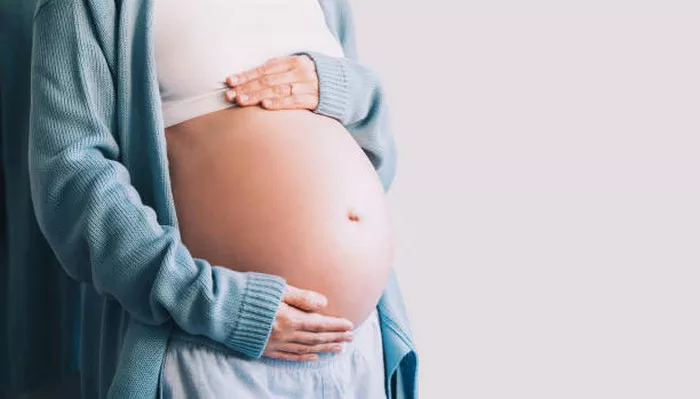Pregnancy is a journey filled with joy, anticipation, and sometimes, unexpected challenges. One of the most heartbreaking experiences a person can face is the loss of a pregnancy, especially when it occurs later in the term. Miscarriage, often associated with early pregnancy, can also occur in the second trimester, raising questions and concerns for expectant parents. This article explores the possibility of naturally miscarrying at 20 weeks, the causes, symptoms, and emotional and physical implications of such an event.
Understanding Miscarriage at 20 Weeks
Miscarriage, defined as the loss of a pregnancy before 20 weeks, is a term typically used for early pregnancy loss. However, when a pregnancy loss occurs at or after 20 weeks, it is often referred to as a stillbirth rather than a miscarriage. Despite this distinction, the experience of losing a pregnancy at this stage can feel similar to a miscarriage, and the term is sometimes used colloquially to describe the event.
At 20 weeks, a pregnancy is well into the second trimester, a time when many parents feel more secure about the pregnancy’s progression. However, the risk of pregnancy loss, though significantly lower than in the first trimester, still exists. Understanding the causes and processes behind a natural miscarriage at this stage is crucial for those who may face this devastating experience.
Causes of Pregnancy Loss at 20 Weeks
Several factors can contribute to a natural miscarriage or stillbirth at 20 weeks. These causes can be broadly categorized into maternal, fetal, and placental factors.
Maternal Health Conditions
Certain health conditions in the mother can increase the risk of pregnancy loss at 20 weeks. These include:
Chronic illnesses: Conditions such as diabetes, hypertension, or autoimmune disorders can complicate a pregnancy and increase the risk of miscarriage or stillbirth.
Infections: Severe infections, such as listeria, toxoplasmosis, or cytomegalovirus, can lead to pregnancy loss if left untreated.
Uterine abnormalities: Structural issues with the uterus, such as fibroids or an incompetent cervix, can contribute to late-term pregnancy loss.
Fetal Abnormalities
Genetic or developmental issues with the fetus are another common cause of pregnancy loss at 20 weeks. These may include:
Chromosomal abnormalities: Conditions like Down syndrome or other genetic disorders can sometimes lead to miscarriage or stillbirth.
Congenital defects: Severe physical abnormalities in the fetus may make it incompatible with life outside the womb.
Placental Problems
The placenta plays a critical role in supporting the pregnancy, and any issues with its function can lead to complications. Examples include:
Placental abruption: This occurs when the placenta separates from the uterine wall prematurely, cutting off the baby’s oxygen and nutrient supply.
Placenta previa: A condition where the placenta covers the cervix, potentially leading to severe bleeding and pregnancy loss.
Symptoms of a Natural Miscarriage at 20 Weeks
The symptoms of a natural miscarriage at 20 weeks can vary but often include:
Vaginal bleeding: This may range from light spotting to heavy bleeding, similar to a menstrual period.
Cramping and pain: Severe abdominal or back pain may occur as the body attempts to expel the pregnancy.
Loss of pregnancy symptoms: A sudden decrease in symptoms such as nausea or breast tenderness may be noticed.
Passage of tissue: In some cases, the fetus and placental tissue may be expelled from the uterus.
It is important to note that not all bleeding or pain during pregnancy indicates a miscarriage. However, any concerning symptoms should be promptly evaluated by a healthcare provider.
The Physical Process of Miscarrying at 20 Weeks
Miscarrying at 20 weeks is a physically and emotionally taxing experience. The process may involve:
Onset of labor: The body may go into labor, with contractions and cervical dilation similar to a full-term delivery.
Delivery of the fetus: The fetus, often too small to survive outside the womb, is delivered.
Expulsion of the placenta: The placenta is also expelled, completing the miscarriage process.
In some cases, medical intervention may be required to ensure the process is complete and to prevent complications such as infection or excessive bleeding.
Emotional Impact and Coping Strategies
The emotional toll of losing a pregnancy at 20 weeks can be profound. Parents may experience grief, guilt, anger, and a sense of emptiness. It is essential to acknowledge these feelings and seek support during this difficult time.
Seeking Professional Help
Counseling or therapy can provide a safe space to process emotions and develop coping strategies. Many hospitals and clinics also offer support groups for parents who have experienced pregnancy loss.
Leaning on Loved Ones
Friends and family can be a source of comfort and understanding. Sharing your feelings with loved ones can help you feel less isolated in your grief.
Honoring Your Loss
Creating a memorial or keepsake, such as a photo, footprint, or piece of jewelry, can help parents honor their baby’s memory and find closure.
Preventing Future Pregnancy Loss
While not all causes of miscarriage or stillbirth can be prevented, there are steps you can take to reduce the risk in future pregnancies:
Regular prenatal care: Attending all scheduled appointments allows healthcare providers to monitor the pregnancy closely.
Managing chronic conditions: Keeping conditions like diabetes or hypertension under control can improve pregnancy outcomes.
Avoiding harmful substances: Refraining from smoking, alcohol, and illicit drugs can reduce the risk of complications.
Genetic counseling: If a genetic issue was identified, counseling can provide insights and options for future pregnancies.
Conclusion
Losing a pregnancy at 20 weeks is a devastating experience that no parent should have to endure. While the term “miscarriage” is typically used for early pregnancy loss, the emotional and physical impact of a second-trimester loss is equally profound. Understanding the causes, symptoms, and processes involved can help parents navigate this challenging time. Seeking support, whether from loved ones or professionals, is crucial for healing and moving forward. Though the pain of such a loss never fully disappears, with time and care, it is possible to find hope and strength for the future.
You Might Be Interested In:

